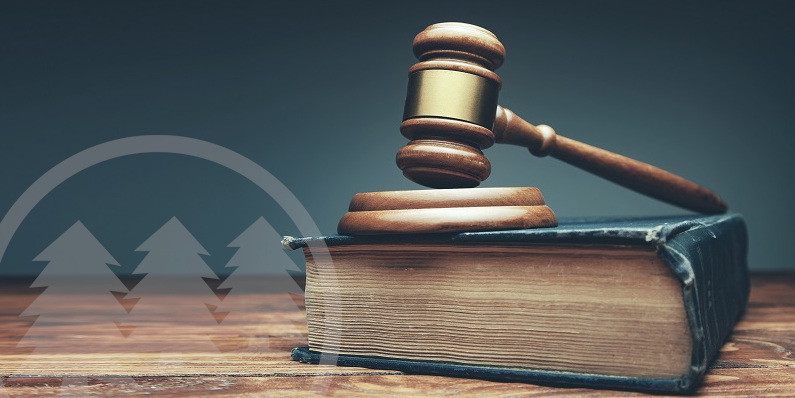Enforcement of the rules and regulations of an HOA can be an intimidating challenge at the best of times. Many of the rules may seem impossible to enforce, and homeowners may often challenge enforcement that they feel is unwarranted or unfairly implemented. In some cases, a resident may plead “selective enforcement” in a court of law. Here is how to deal with HOA selective enforcement claims and how to ensure rules are enforced uniformly throughout.
Cracking Down on HOA Selective Enforcement
New board members may be unfamiliar with a homeowners association selective enforcement claim. Some may not even know it is happening right under their very noses. Unfortunately, selective enforcement in HOAs is nothing new, which is why some state laws even go as far as to expressly dictate that uniform enforcement is a requirement in such associations.
Board members must act justly towards all residents, regardless of any personal biases or relationships. Carelessness, favoritism, or outright neglect can lead to selective enforcement, which can result in legal trouble. As such, it is important to get rid of any HOA selective enforcement in the community.
Selective Enforcement Definition
 What is selective enforcement anyway? Simply put, it is when an HOA board chooses at their own discretion which rules to enforce, who to enforce them upon, and how to punish violators.
What is selective enforcement anyway? Simply put, it is when an HOA board chooses at their own discretion which rules to enforce, who to enforce them upon, and how to punish violators.
One of the purposes of the board is to enforce the bylaws and covenants that each resident signed when they chose to be a part of the community.
When the time comes that a homeowner must be penalized for a breach in contract, whether big or small, the homeowner has the legal right to file a claim of selective enforcement of HOA rules.
The resident can file a claim if they feel either of two things has happened:
- The regulation has been enforced in their case but not in others.
- The regulation has been enforced unfairly or inconsistently throughout the community.
Preventing a Selective Enforcement Claim
A homeowner can sue HOA for selective enforcement if they feel it is warranted — they have every right to do so. Naturally, an HOA board will want to do everything in its power to prevent legal action from taking place. Lawsuits are a source of headaches for both the homeowner and the HOA, so it is best to avoid them altogether. But sometimes, a resident may feel it is the only option left.
There are three main things that the board can do to protect itself against an HOA selective enforcement claim being filed by an angry homeowner:
1. Perfect an Enforcement System
 The first is to establish a system of enforcement that is systematic, nondiscriminatory, and above reproach. The HOA board must know its governing documents — the articles of incorporation, bylaws, CC&Rs, and rules & regulations — front and back.
The first is to establish a system of enforcement that is systematic, nondiscriminatory, and above reproach. The HOA board must know its governing documents — the articles of incorporation, bylaws, CC&Rs, and rules & regulations — front and back.
They must have it memorized like the back of their hand. That way, should a board member encounter a rule violation, they will immediately be aware that it has taken place.
Each and every instance of an implementation of the regulation should also be documented thoroughly in case the resident needs to be persuaded of the irreproachable nature of the system. The board must follow the resolution of violations as they are outlined in the governing documents. If possible, any citations should come with photo evidence.
2. Play It Fair
A surefire way for a board member to get him or herself into trouble is to play favorites. Just because the board member is close friends with a particular resident does not mean the latter can be exempt from any consequences as a result of a violation. For instance, if the resident parks somewhere they should not have, the board must not let them get away with it scot-free. In such a case, the board must refer to its governing documents for any fines or warnings that should apply.
Additionally, just because it takes a lot of time and work to enforce a certain rule does not mean the board can simply choose not to enforce it altogether. No one ever said being on the HOA board would be an easy task, and board members must have known what they signed up for.
3. Provide a Medium of Complaint
 The third protection against an HOA selective enforcement claim is to establish beforehand a system by which the resident can issue complaints without resorting to a public lawsuit.
The third protection against an HOA selective enforcement claim is to establish beforehand a system by which the resident can issue complaints without resorting to a public lawsuit.
Sometimes, homeowners just want to complain or voice out their opinions and have no intention whatsoever to seek legal action. However, if the board refuses to listen or does not provide residents with a standard complaint system, this may force their hand.
Most issues can be handled internally if the proper time and attention can be given to the grievances of the homeowner. Complaints need not escalate and reach a court of law. In the midst of constant elections, re-elections, and changes in board membership, it is important to establish consistency and to be as communicative as possible with homeowners when changes of enforcement are expected.
Building a Solid Defense
 At times, it may be impossible to avoid an HOA selective enforcement battle. In the regrettable event that a resident files a claim, it is important to be prepared for such an eventuality.
At times, it may be impossible to avoid an HOA selective enforcement battle. In the regrettable event that a resident files a claim, it is important to be prepared for such an eventuality.
Good defense on the side of the association is built on proof of adequate reasoning behind the enforcement as well as meticulous record-keeping of all past enforcement.
Additionally, the HOA’s CC&Rs must be clearly written, with every rule defined concisely. Apart from that, the CC&Rs must also outline in detail what consequences will follow in case these rules are infringed upon. The association is usually asked to provide documented proof that it was necessary to enforce the rule for the well-being of the community.
It is also recommended that the HOA board should take pictures of the violation as they are spotted. This will help the board prove that a violation has transpired.
The Key to Uniform Enforcement
HOA selective enforcement is just one of the many challenges that a board will face. Prevention highly depends on an organized system and a standard procedure in place. When it comes to battling it out in court, consistency, communication, and meticulous record-keeping are key. Although it can be overwhelming, the HOA board’s efforts to keep the peace will be well worth the trouble.
If your HOA is having difficulty with uniform enforcement of rules, consider partnering with an HOA management company. In that case, we are just one call away.
RELATED ARTICLES:
- 14 Top HOA Board Mistakes That Should Be Avoided At All Cost
- 5 Major Benefits Of Hiring An HOA Management Company
- What Happens If You Don’t Pay HOA Fees?






